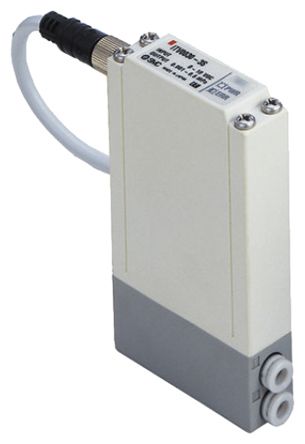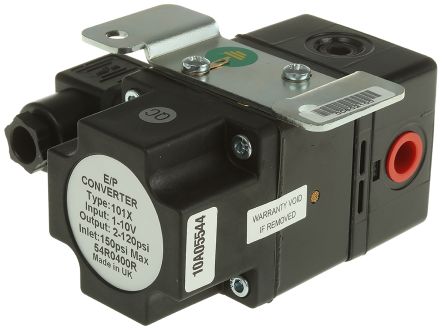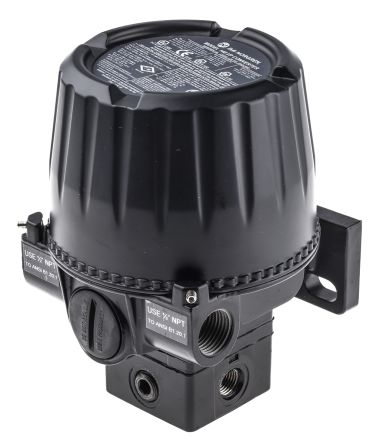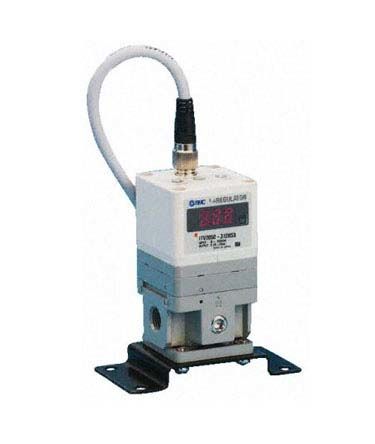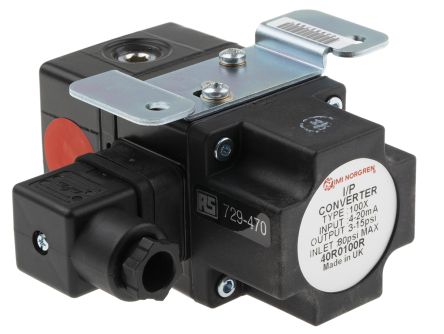- Automation & Control Gear
- Cables & Wires
- Enclosures & Server Racks
- Fuses & Circuit Breakers
- HVAC, Fans & Thermal Management
- Lighting
- Relays & Signal Conditioning
- Switches
- Batteries & Chargers
- Connectors
- Displays & Optoelectronics
- ESD Control, Cleanroom & PCB Prototyping
- Passive Components
- Power Supplies & Transformers
- Raspberry Pi, Arduino, ROCK, STEM Education & Development Tools
- Semiconductors
I/P & E/P Converters
I/P and E/P converters are a type of pneumatic fitting that can change pneumatic pressures in response to varying electrical current and voltage input signals. These converters can be mounted in control rooms or in the field. Some devices come with mounting brackets and connector plugs and can be sensitive to low pressures. An I/P converter works with current and an E/P converter works with voltage.
Pneumatic control valves usually need a converter to change an electrical signal into a pneumatic one. I/P converters offers a reliable way of converting electric signals into pneumatic pressure. Their function is to deliver a flow of liquid or gas, based on the rate of electrical current that is received into the electrical circuit.
What does an I/P converter do?
An I/P converter is a current to pressure transducer which is used in industrial control systems. These devices are used to translate a current input signal (I) into a pneumatic output (P) which then controls the opening or closing of a valve. They translate the analog output from a control system into a pressure value to control pneumatic actuators, pneumatic valves, dampers and vanes. There are suitable in circuits that require various speeds.
What is the difference between an I/P converter and an E/P converter?
The 'I' in I/P represents current, the 'E' in E/P represents voltage and the 'P' represents pressure. So in general an I/P is an electronic device that converts electric current into a known output pressure and an E/P converts voltage into a known output pressure. The IP converter usually receives a 4-20mA signal and converts it to a pneumatic output and the E/P converter usually receives a 0-10V signal and also converts it to a pneumatic output.
Application
I/P and E/P converters are widely used in manufacturing and industrial automation.
